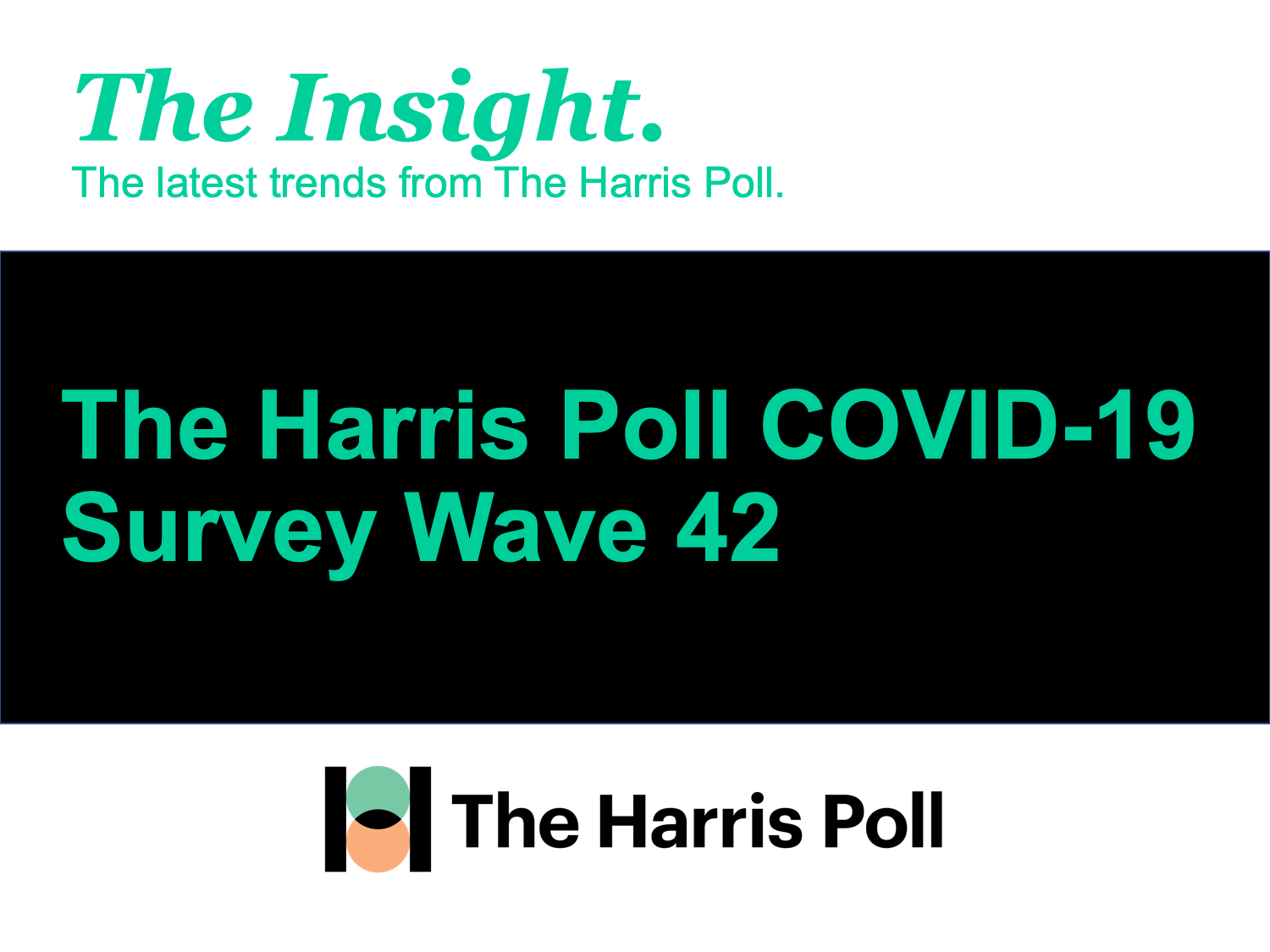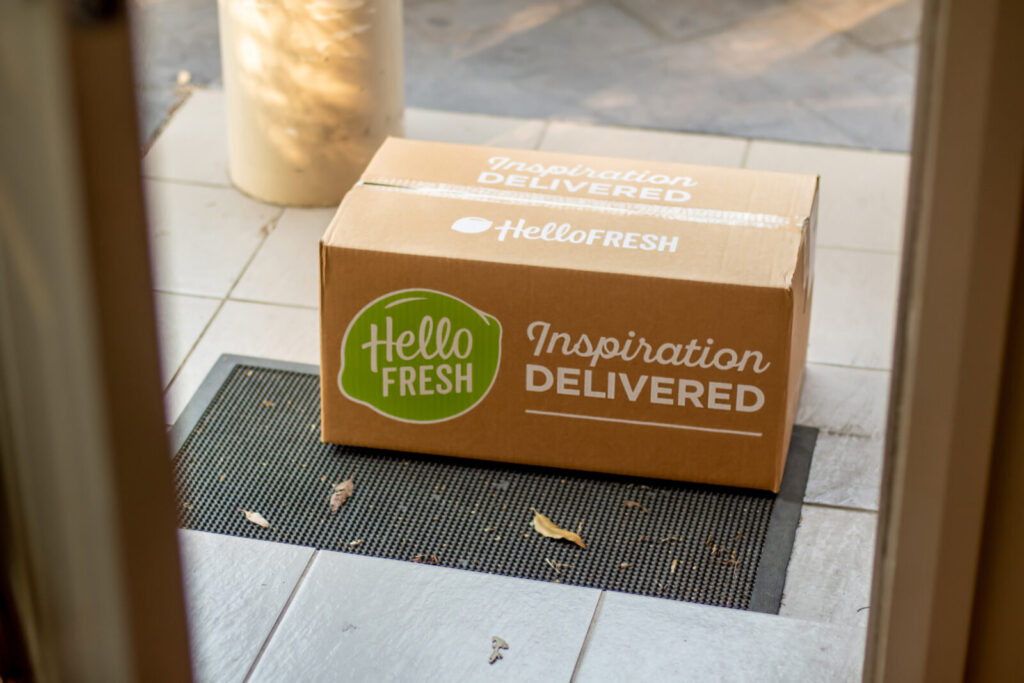Brief • 4 min Read

In The Harris Poll COVID-19 Tracker (Week 42) fielded December 11th – 13th, 2020, we look at what investors have to say about Nasdaq’s push for diversity, whether Americans are willing to relocate for their job, a second take on how consumers really view Big Tech, how millennials are being impacted financially and lastly American attitudes on the arrival of the COVID-19 vaccine.
As a public service, our team has curated key insights to help leaders navigate COVID-19. Full survey results, tables, and weekly summaries can be accessed for free at The Harris Poll COVID-19 Portal. We will continue to actively field on a regular cadence to track the shifts in sentiment and behaviors as the news and guidelines evolve.
New York Times DealBook – Who’s on board with Nasdaq’s diversity push
Earlier this month, DealBook broke the news that Nasdaq asked the S.E.C. for permission to set diversity and inclusion requirements for the more than 3,200 companies listed on its stock exchange: have at least one woman and one director who identifies as L.G.B.T. or from an underrepresented ethnic group – or face consequences. Last week, DealBook followed-up featuring our data on how Americans feel about the requirement.
- Most American investors agree with Nasdaq’s plan: More than half (55%) agree with the plan: about (22%) of those polled strongly agreed with the plan, while (33%) percent somewhat agreed. The general public followed a similar pattern.
- About 4 in 10 (37%) of people were close to guessing how many companies already met the proposed guidelines. (It’s less than a quarter.) One-fifth (18%) guessed there were less than 10% of companies meeting the requirement.
- But investors are somewhat split on whether it will work. About a third of respondents said they were hopeful that the proposal would “create any change in diversity and inclusivity,” while (27%) said they were annoyed by the imposition.
- There is a clear political divide: 7 in 10 (71%) of Democrats agree with the requirement vs only one-third (35%) of Republicans.
Takeaway: Harris Poll CEO John Gerzema weighs in: “Investors are skeptical (25%) and annoyed (27%) with Nasdaq’s diversity requirement. Investors might be cynical of driving change in a polarized government (given the party divide on this issue) and dubious of moving the needle for so many companies, given less than a quarter of companies on the stock exchange currently meet diversity standards.”
Would You Relocate for Your Job?
Tech-giant Oracle recently announced they were moving their headquarters from Silicon Valley to Austin, TX – the latest in a string of tech companies relocating to a cheaper area of the country, from Palantir Technologies moving to Denver, CO and Hewlett Packard Enterprise moving to Austin, TX. We asked Americans if their employer moved – would they follow?
- Should I stay or should I go? Over half of Americans (54%) say they would be more likely to look for a new job rather than relocate if a company they worked for relocated their position to a different state; (46%) say they would relocate to the new state.
- If companies allow a permanent work-from-home option, half of Americans (51%) say they would be likely to relocate elsewhere.
- Where would remote workers choose to work from? Half of Americans (50%) would choose to relocate closer to family and friends, while (45%) would be near a beach. One-third (31%) of Gen Z/Millennials and (33%) of Gen Xers would move to a large urban city (vs 20% of Boomers) and (29%) of Parents would move to be in a good school district (vs 15% of Non-Parents).
- Show me the money: Nearly three quarters of Americans (72%) would be likely to relocate if a company they worked for offered them a monetary incentive.
- Cost of living adjustment: Nearly 4 in 5 Americans (79%) agree that if a company relocates a worker to another city or state, their salary should be adjusted based on there they will be living and the cost of living in that area.
- Stripe recently offered its employees $20,000 to relocate away from New York City, Seattle, or San Francisco … but it came with a 10% pay reduction.
Takeaway: The Economist weighs the cost and benefit of the relocation exodus: “Telecommuting offers other potential cost savings, and not just the reduced need for office space. Remote workers do not need to live in big cities where property is expensive. […] Remote employees are, in essence, competing with a global workforce and are thus in a much weaker bargaining position.”
“Survey: Americans think Big Tech isn’t so bad after all” Harris CEO Will Johnson in TechCrunch
Last week, CEO Will Johnson wrote an op-ed for TechCrunch, based on our survey of 2,069 representative adults in the U.S., that found while American adults overwhelmingly side with the House Judiciary Committee’s findings on Big Tech, Americans just as overwhelmingly tell us their favorite providers are not monopolies at all. Here are a few highlights:
- The COVID-19 pandemic has only increased loyalty. Cooped-up day after day, half of American adults say they’re streaming more video than they did a year ago, for instance, while a third are shopping more online. If consumers are feeling abused by Big Tech — and more than half do say big tech companies fail to always do right by their customers — they’re not riled up enough to click elsewhere.
- American consumers also don’t feel like captives without options. Although (55%) of Americans agree that Google has too much power and should be severed from YouTube and Gmail, 4 out of 5 Americans say there are adequate alternatives.
- Despite Big Tech’s market dominance, American consumers don’t think these companies are hurting their rivals, either. Though three-quarters of Americans see Amazon, Apple, Google and Facebook as monopolies, four of five people say tech giants promote innovation in their industries and two-thirds say these companies promote competition and enhance the nation’s global reputation.
Takeaway: When we separate Americans’ narrow take on individual companies from their perceptions of the digital realms consumers inhabit daily, we see little reason for the federal government to blow up Big Tech. Another cautionary finding: Barely half of the representative American adults in our poll even think regulators and lawmakers are the right groups to determine whether a company is too big.
New Poll Shows the ‘Outsized’ Financial Burdens Faced by Millennials – Yahoo Finance
Our latest research with DailyPay, the Bipartisan Policy Center Funding Our Future campaign, and The Center for Financial Security at the University of Wisconsin found that Millennials are being especially impacted financially by the pandemic.
- Over half of Millennials (52%) say their savings have declined during the pandemic with (44%) saying they have either no savings at all or don’t currently have enough to cover an emergency expense of $400.
- A third of Millennials expect they’ll need to continue to work into their 70s based on a lack of saving. Only one-third (35%) of Millennials say they’re on the right track to meet their retirement goals.
- When it comes to student debt, (66%) of respondents believe the government should forgive at least some federal debt. President-Elect Joe Biden is under increasing pressure to do just that once he is inaugurated next month.
- But these effects are uneven: The survey also showed a divide with a quarter of young people suggesting that their savings have actually increased during the pandemic while (29%) of those with only a high school education say they have no savings at all.
Takeaway: “An economy that was already difficult for young workers is getting even more challenging in some critical ways” noted Matthew Kopko, Vice President of Public Policy for DailyPay. “This data shows the resilience of younger generations in the face of the second major economic shock of their financial lives,” added J. Michael Collins of the Center for Financial Security, referring to this year’s pandemic and the Great Recession of 2007-2009.
America’s “V-DAY”
In last week’s newsletter, we talked about how the U.K. was celebrating what the media declared as “V-Day” – the first day the country’s vaccine rollout. This week, it was America’s turn: Sandra Lindsay, a critical care nurse in Queens, NY on Monday became the first person in the U.S. to be vaccinated outside of clinical trials.
- First draft of history: Nearly a quarter of Americans (73%) agree that the administering of the first COVID-19 vaccines will go down in world history as a major event along with elections, wars, and peace treaties.
- How does the vaccine rollout compare to other historic moments? Americans think the first COVID-19 vaccines being administered is more significant than the legalization of same-sex marriage (36%), Barack Obama becoming the first Black president in the U.S. (35%), women receiving the right to vote (28%), The Berlin Wall being taken down (27%), and Neil Armstrong becoming the first man to set foot on the moon (26%).
- More than 3 in 5 Americans (63%) think that people who sign up first to get the COVID-19 vaccine are mostly being smart, while (37%) say they are mostly being reckless.
- While nearly 3 in 5 Americans (58%) believe the FDA approving a COVID-19 vaccine means that it is safe, (42%) do not believe that. Americans say their single most trusted source for information about the vaccine right now is the CDC (21%), followed by their healthcare provider (16%) and the FDA (13%).
Takeaway: Despite the historic nature of the vaccine development, now comes arguably the hardest part: distributing the vaccine to those most in need and earning the trust of the American public that the vaccine is safe.
Subscribe for more Insights
Subscribe to our newsletter for the latest trends in business, politics, culture, and more.
Download the Data
This survey was conducted online within the U.S. by The Harris Poll from December 11 to 12, 2020 among a nationally representative sample of 2,002 US. adults.
Download
Subscribe for more Insights
Subscribe to our newsletter for the latest trends in business, politics, culture, and more.
Download the Data
This survey was conducted online within the U.S. by The Harris Poll from December 11 to 12, 2020 among a nationally representative sample of 2,002 US. adults.
DownloadRelated Content








